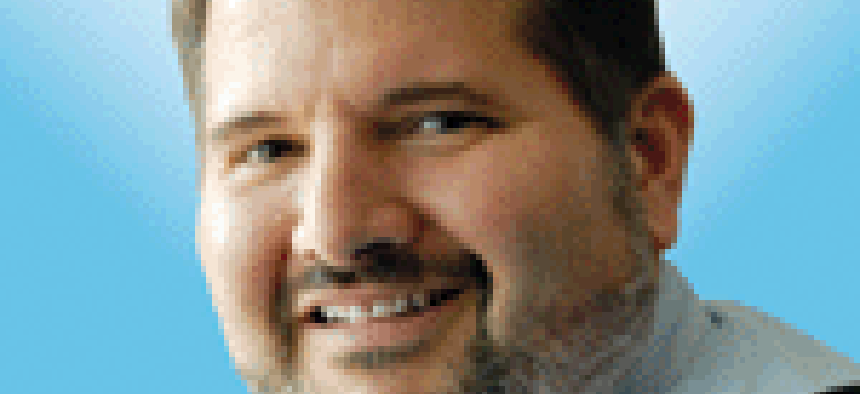From 16 to 60, women in tech face challenges

A conversation with former Air Force Secretary Deborah James and a pair of 16-year-old "Girls Who Code" show that strides have been made to welcome women to technology but challenges remain.
This summer I had a chance to do two things on back-to-back days that couldn’t have been more different but also more alike at the same time.
First, I attended a book signing event for Deborah Lee James, a former Air Force Secretary and Leidos executive, who has written the book Aim High: Chart Your Course and Find Success. It’s a memoir and career advice book that covers her career in politics and industry. Chapters have titles such as Get a Mentor, Be a Mentor, Build Your Network and Speak Up and Listen Deeply.
James was often the only woman in the room as she pursued in her career and faced doubters and worse as she persevered and found success.
She told me after the event (sponsored by her former employer Leidos) that she started the book with women readers in mind, but realized that her experiences and lessons applied to everyone.
A common theme throughout the book is adaptability. Things in life go wrong. James had to reset in her early 20s when her dreams of being in the foreign service were crushed when she failed to pass the entrance exam.
James' book and her talk are those of a person in the last act of her career. She’s focused on serving on boards and consulting on executive development where she can apply her expertise in business and policy.
I left that thinking how far women have come in the workforce. But then came the next day, when I went to visit the Girls Who Code program. The program introduces young women in middle school and beyond to the world of coding.
I then visited a class in Washington D.C. during week six of a seven-week program. The class of mostly high school students had broken into teams by this week and were either working on an app or a web page. I sat down with two 16-year-old students. One from Montgomery County, Maryland and the second from Loudoun County, Virginia.
Snigdha Subraveti’s team was working on a web site that would offer people access to a wide variety of resources in the aftermath of a natural disaster. Maxine Hsu’s team was developing a site that would allow people to post where they ate their favorite dishes. User with a craving for a specific dish could see the best places to find that dish.
Their ideas were fun and creative and it was obvious that they loved coding and were all in with the Girls Who Code program.
They are 16 and Deborah Lee James is 60, so one might think their experiences would be miles apart.
But sadly, they have much in common.
Both girls told me how out of place they felt when they first walked into their coding class rooms at their schools.
“On the first day, I saw no other girls in the class and I thought, ‘Oh my god, what have I done,’” Subraveti told me.
The culture around tech is still that is a guy thing. The boys greeted them with skepticism, Subraveti and Hsu told me. They weren’t teased or harassed. Just mostly ignored. Until they proved themselves, and the boys realized they knew what they were doing.
“You just have to do it. The only person capable of stopping you is you,” Hsu said.
The Girls Who Code program has provided an additional boost of confidence to the girls. They don’t feel so alone.
“They are a lot of people like me,” Subraveti said.
In many ways they are living the lessons that James espouses in her book – positivity, persistence, learn, listen and speak up.
I conducted these interviews on July 30 and Aug. 1 and never intended to sit on them for so long. But the message of these three women has stuck with me and we’ll explore the issue more in an upcoming Washington Technology Power Breakfast on human capital strategies on Sept. 27.
We have three panels teed up -- Building the Workforce of Tomorrow, Hiring Veterans and the Power of Diversity. I think we’ll hear a lot of the themes that James has in her book as well as what Hsu and Subraveti have faced so far.
I'm also sure we’ll hear about efforts being made to open paths for Girls Who Code to become Women Who Code.
NEXT STORY: Esper's JEDI review continues


